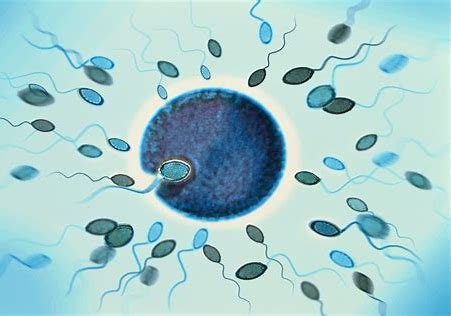Obesity epidemic impacts on fertility, but denying women treatment based on weight is discriminatory
03 May 2022 | Tuesday | News

Image Source : Public Domain
Overweight or obese women are at greater risk of menstrual dysfunction or pregnancy related difficulties, and those with excessive body mass index (BMI) undergoing assisted reproductive technology experience a higher incidence of complications including miscarriage or low birth rates.
As a result, assisted reproduction is being withheld from women above certain BMI thresholds in some countries with proponents of this policy citing risks to women seeking treatment, the well being of potential offspring, and costs to public health systems.
However, a global audience of fertility specialists from more than 100 countries was told today that denying fertility treatment to women based on BMI was discriminatory, and for older women with a reduced reproductive window of opportunity it could deny any chance of achieving motherhood.
Professor Eileen Manalo, a fertility specialist from the Philippines, told the 2022 Congress of the Asia Pacific Initiative on Reproduction (ASPIRE) of the potential consequences of IVF clinics imposing cut-offs on treatment based on excessive weight of patients.
The Congress in virtual format is linking scientists, clinicians, nurses and counsellors to address the obstacles facing couples striving for parenthood and latest advances in infertility treatment, particularly in the Asia Pacific region.
Professor Manalo from the University of the Philippines College of Medicine and Assistant Secretary of the International Federation of Fertility Societies (IFFS), said according to latest estimates more than 50 per cent of women of reproductive age globally were overweight or obese.
Obesity is defined by the World Health Organisation as a BMI equal to or exceeding 30kg per square metre, and the Asian equivalent is equal to or more than 25kg per square metre.
"The causes of obesity include excessive calorie intake and lack of physical activity, and the consequences include increased risks of sleep apnea, musculoskeletal disorders, cardiovascular disease, diabetes and malignancies, including colon, endometrial and breast cancer," Professor Manalo said.
"It is also known to have a profound impact on reproductive health and in women with higher BMI undergoing assisted reproductive technology there is lower oocyte recovery, higher risks of ovarian hyperstimulation syndrome (OHSS), higher miscarriage rates, and a reduction in live birth rates in both fresh and frozen embryo transfers.
"A recent meta-analysis based on 682,532 fresh and frozen IVF cycles concluded that obese women had a significantly decreased chance of giving birth following IVF compared to normal weight women.
"These poorer reproductive outcomes in obese women have been attributed to impaired ovarian function, poorer oocyte quality, and diminished embryonic and uterine development.
"Being overweight also adversely affects the health of children born to parents who are above recommended BMI levels, including cardio-metabolic respiratory and cognitive related outcomes."
Professor Manalo said excessive weight among women trying to achieve pregnancy could be addressed by diet and exercise and, in more serious cases, pharmacotherapy and surgery to limit calorie intake.
IVF units in a number of countries, including Canada, Italy, New Zealand and England have imposed BMI cut-offs to access fertility care. In ASEAN countries there is is no uniform, cut-off provision.
"Patients should be made aware of the risks of high BMI levels and the benefits of weight loss, and be offered resources to help them lose weight."
But Professor Manalo said if a woman was unable to lose weight despite effort, withholding fertility treatment could not be justified.
"Denying fertility care on the basis of weight is discriminatory leading to stigmatisation that can exacerbate feelings of low esteem, social isolation, anxiety and depression.
"For older obese women or those with diminished ovarian reserve denying fertility care until they have lost a specific amount of weight may cost them valuable time and any chance of pregnancy."
Most Read
- Innovations In Magnetic Resonance Imaging Introduced By United Imaging
- Management of Relapsed/Refractory Multiple Myeloma
- 2025 Drug Approvals, Decoded: What Every Biopharma Leader Needs to Know
- BioPharma Manufacturing Resilience: Lessons From Capacity Expansion and Supply Chain Resets from 2025
- APAC Biopharma Review 2025: Innovation, Investment, and Influence on the Global Stage
- Top 25 Biotech Innovations Redefining Health And Planet In 2025
- How Health Systems Are Reshaping Drug Adoption, Partner Models, and Market Access in 2026
- The New AI Gold Rush: Western Pharma’s Billion-Dollar Bet on Chinese Biotech
- Single-Use Systems Are Rewiring Biopharma Manufacturing
- The State of Biotech and Life Science Jobs in Asia Pacific – 2025
- Asia-Pacific Leads the Charge: Latest Global BioSupplier Technologies of 2025
- Invisible Threats, Visible Risks: How the Nitrosamine Crisis Reshaped Asia’s Pharmaceutical Quality Landscape
Bio Jobs
- Sanofi Turns The Page As Belén Garijo Steps In And Paul Hudson Steps Out
- Global Survey Reveals Nearly 40% of Employees Facing Fertility Challenges Consider Leaving Their Jobs
- BioMed X and AbbVie Begin Global Search for Bold Neuroscience Talent To Decode the Biology of Anhedonia
- Thermo Fisher Expands Bengaluru R&D Centre to Advance Antibody Innovation and Strengthen India’s Life Sciences Ecosystem
- Accord Plasma (Intas Group) Acquires Prothya Biosolutions to Expand Global Plasma Capabilities
- ACG Announces $200 Million Investment to Establish First U.S. Capsule Manufacturing Facility in Atlanta
- AstraZeneca Invests $4.5 Billion to Build Advanced Manufacturing Facility in Virginia, Expanding U.S. Medicine Production
News











